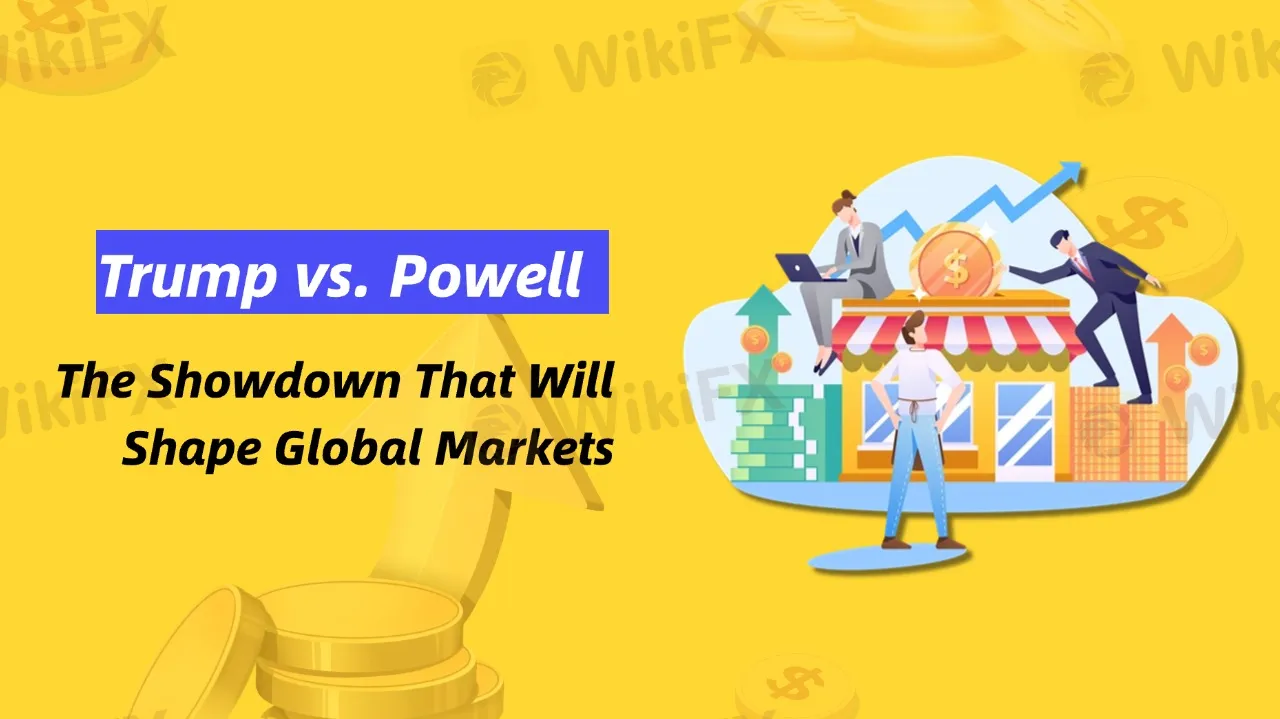简体中文
繁體中文
English
Pусский
日本語
ภาษาไทย
Tiếng Việt
Bahasa Indonesia
Español
हिन्दी
Filippiiniläinen
Français
Deutsch
Português
Türkçe
한국어
العربية
Trump vs. Powell: The Showdown That Will Shape Global Markets
Abstract:The financial market is in a downturn, with Trump and the Federal Reserve each making their own calculations, while investors anxiously watch from the sidelines. Their decisions will determine the market’s direction!

The confrontation between Trump and the Federal Reserve appears to be a standoff between monetary and fiscal policies, but at its core, it is a clash of power and credibility. Trump aims to influence market trends through trade wars and other measures, while Powell insists on the Feds independence and remains cautious about cutting interest rates.
The market widely expects the Fed to step in with rate cuts if the economy slows down, but Bank of America warns that if inflation remains high, the Fed will not easily back down to avoid damaging its credibility. This battle is not just about the U.S. economy—it is a focal point for global investors.
Trumps tariff policies have caused significant market volatility. After a sharp decline in U.S. stocks, he has shown no signs of calming the markets, shaking investor confidence.
Meanwhile, the Fed faces a dilemma: cutting rates too soon could send the wrong signal and lead to inflation spiraling out of control, while delaying too long could fuel market panic and increase the risk of recession. In this high-stakes game, investors are mere spectators, and the uncertainty in market expectations is further destabilizing the financial landscape.
Future Challenges: How Should Investors Respond?
If the U.S. economy falls into recession, the consequences will ripple across the globe, leaving investors to navigate an increasingly complex landscape. While the market expects the Fed to cut rates only in the event of a true recession, in the short term, policy uncertainty and inflation pressures will continue to weigh on financial markets.
Investors must closely monitor policy developments and adjust their asset allocations accordingly to brace for potential market turbulence. This “game of chicken” remains unresolved, and market uncertainty is likely to persist.

Disclaimer:
The views in this article only represent the author's personal views, and do not constitute investment advice on this platform. This platform does not guarantee the accuracy, completeness and timeliness of the information in the article, and will not be liable for any loss caused by the use of or reliance on the information in the article.
Read more

Fed Holds Rates Steady! Yen Faces Growing Uncertainty
The Fed stays put but strikes a hawkish tone. The yen remains under pressure as market uncertainty deepens.

Is Your Money Safe with Libra Markets? Check Out Fast!
n this exposure episode, we will take you through the heinous game played by Libra Markets, an unregulated forex broker. Take a look at how people are facing issues regarding withdrawals.

TradeHall vs. HYCM: Which Broker Should You Choose?
When choosing a broker, understanding the difference between superficial features and real regulatory protection is essential. In this article, WikiFX will compare TradeHall and HYCM. While on the surface, both brokers offer a wide range of trading instruments, the real difference lies in their regulatory statuses, which is a commonly overlooked factor for traders when they opt for brokers.

Trade Nation vs. FBS: Which Broker Is Better for New Traders?
If you're new to trading, choosing the right broker can feel overwhelming. Two popular choices, Trade Nation and FBS, offer very different experiences. This comparison breaks down which is better suited for beginners, based on ease of use, safety, costs, and support.
WikiFX Broker
Latest News
Tether Freezes $12.3 Million in USDT Over Money Laundering Concerns
MiCA Unlocks EU Crypto Market, but National Tensions Rise as Gemini and Coinbase Near Approval
Retirement Dreams Shattered: Don't Do This To Yourself!
Philippines Sets Southeast Asia’s First Crypto Regulatory Framework
EU Regulators Imposed Over €71M in Sanctions in 2024, ESMA Calls for Enforcement Convergence
FortuixAgent Review 2025: Is it Scam or Legit?
Danske Bank expects the European Central Bank to make its final interest rate cut in September.
No Regulation, Revoked Licence: Is Tradehall Safe to Use?
FXGT.com Trading Platform Review 2025
ATTENTION! Red Alert on These Brokers !
Currency Calculator


